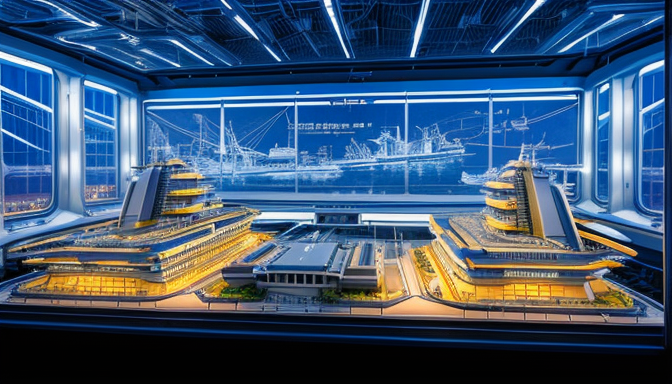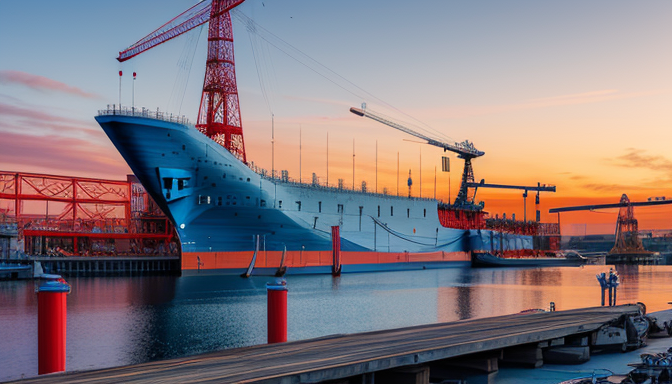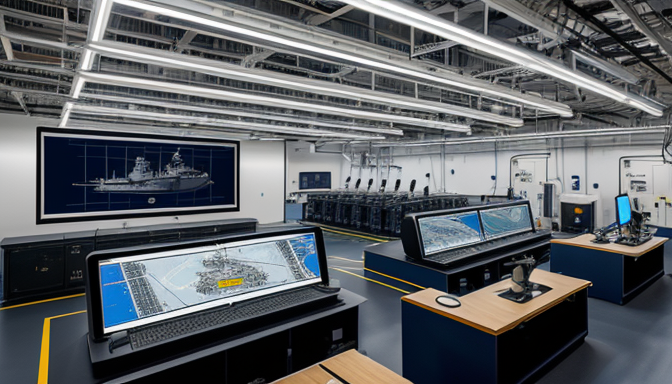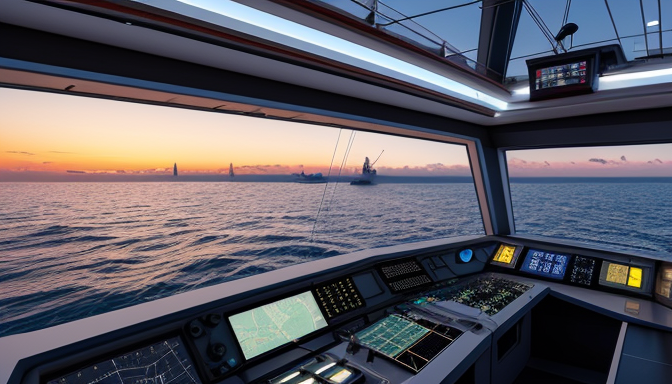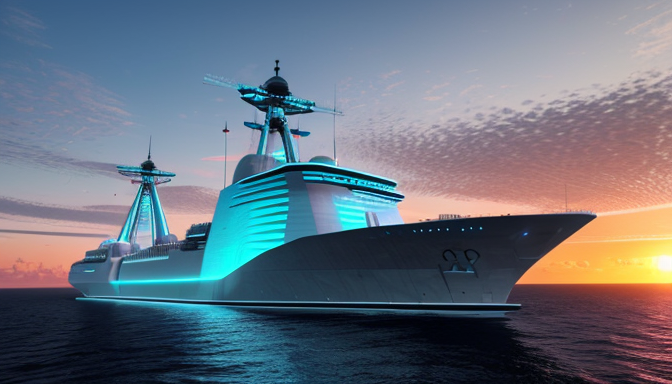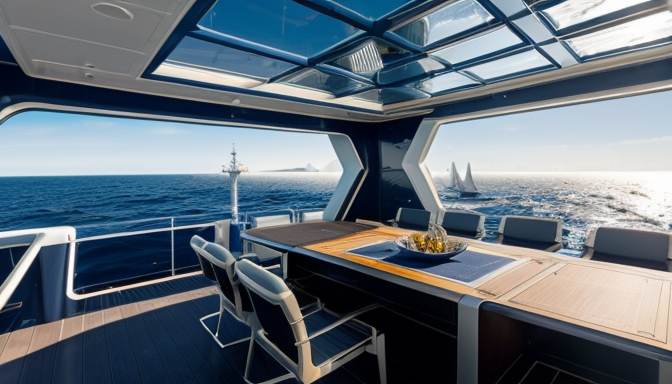Why Naval Engineering Matters More Than Ever
In today’s fast-paced world, naval engineering stands at the forefront of innovation, playing a critical role in shaping our future. Imagine a world where ships are not just vessels but advanced platforms equipped with cutting-edge technology that enhances our ability to navigate the vast oceans. This is the reality that naval engineers are creating, driving advancements in ship design that prioritize not only efficiency but also safety and performance.
Furthermore, the emergence of green propulsion systems is revolutionizing the maritime industry. As we grapple with environmental challenges, naval engineering is responding with solutions that minimize ecological impact. These innovations include hybrid engines and alternative fuels, which are crucial for reducing emissions and promoting sustainability in our oceans. It’s like trading in your gas-guzzling car for an electric vehicle; the difference is not just in performance but in the positive impact on our planet.
As we delve deeper into the realm of marine innovations, it’s clear that naval engineering is more than just a technical field; it’s a vital component of national security and economic growth. Countries around the globe are investing heavily in their naval capabilities, understanding that a strong maritime presence is essential for protecting trade routes and ensuring safety on the high seas. In essence, naval engineering is not just about building ships; it’s about building a safer, more sustainable future for all.
Innovation in Naval Technology
In today’s fast-paced world, is not just a luxury; it’s a necessity. As we navigate through the complexities of maritime operations, advancements in ship design and engineering are paving the way for a more efficient and effective naval fleet. Imagine ships that can adapt to their environment, utilizing advanced materials that are lighter yet stronger, enhancing speed and agility. This is not science fiction; it’s happening right now!
One of the most exciting developments is in green propulsion systems. With the growing emphasis on sustainability, naval engineers are crafting vessels that utilize renewable energy sources. These systems reduce reliance on fossil fuels and minimize the ecological footprint of naval operations. For instance, integrating solar panels and wind turbines into ship designs allows vessels to harness natural energy, significantly lowering emissions. The shift towards these technologies is not just about compliance; it’s about leading the charge in environmental stewardship.
Moreover, we are witnessing groundbreaking marine innovations that enhance operational capabilities. From autonomous underwater vehicles (AUVs) that can conduct deep-sea explorations without human intervention to advanced navigation systems that utilize artificial intelligence for better route planning, the future of naval technology is bright. These innovations not only improve efficiency but also ensure that our naval forces are prepared for any challenge that may arise. So, as we look to the horizon, it becomes clear that the innovations in naval technology are not just transforming fleets; they are shaping the future of maritime operations.
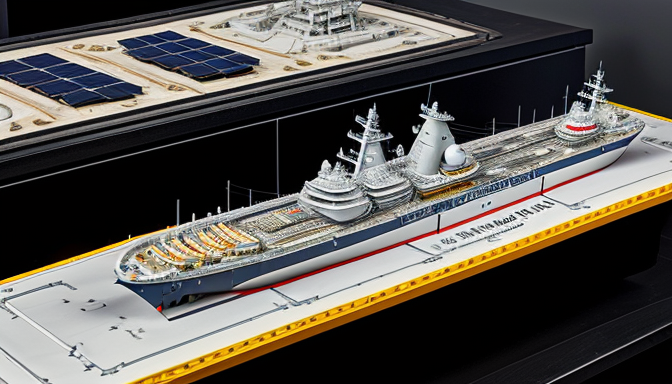
Environmental Considerations in Naval Engineering
In today’s world, where environmental consciousness is at an all-time high, naval engineering is stepping up to the plate with innovative solutions that not only enhance performance but also protect our precious ecosystems. Imagine a ship that sails smoothly while leaving behind a minimal carbon footprint—this is not just a dream, but a reality being crafted by engineers around the globe. The integration of cutting-edge ship design and green propulsion systems is transforming the maritime industry into a beacon of sustainability.
One of the most exciting advancements is the use of renewable energy sources in naval vessels. For instance, solar panels and wind turbines are being incorporated into ship designs, allowing vessels to harness natural energy. This means less reliance on fossil fuels and a significant reduction in greenhouse gas emissions. Furthermore, innovative hull designs are being developed to improve hydrodynamics, which not only boosts fuel efficiency but also minimizes water resistance, leading to a greener operation overall.
Moreover, marine innovations are paving the way for a cleaner ocean. Technologies such as wastewater treatment systems and ballast water management help prevent pollution and protect marine life. As we look to the future, the question remains: how can we further push the boundaries of naval engineering to safeguard our environment? The answer lies in collaboration, research, and a commitment to sustainable practices that prioritize the health of our planet.
Frequently Asked Questions
- What is naval engineering?
Naval engineering is the discipline that focuses on the design, construction, and maintenance of ships and other marine vessels. It combines principles of mechanical, electrical, and structural engineering to ensure vessels are safe, efficient, and environmentally friendly.
- Why is naval engineering important for national security?
Naval engineering plays a critical role in national security by ensuring that a country’s naval fleet is capable of defending its interests. It involves the development of advanced technologies that enhance maritime operations, making it essential for maintaining a strong defense posture.
- How does naval engineering contribute to environmental sustainability?
With increasing environmental concerns, naval engineering is shifting towards sustainable practices. This includes designing ships that reduce emissions, utilizing alternative fuels, and implementing technologies that minimize ecological impact, all while maintaining operational effectiveness.
- What are some recent innovations in naval engineering?
Recent innovations include the development of autonomous vessels, advanced propulsion systems, and smart technologies that improve navigation and safety. These advancements not only enhance efficiency but also contribute to a greener maritime industry.
